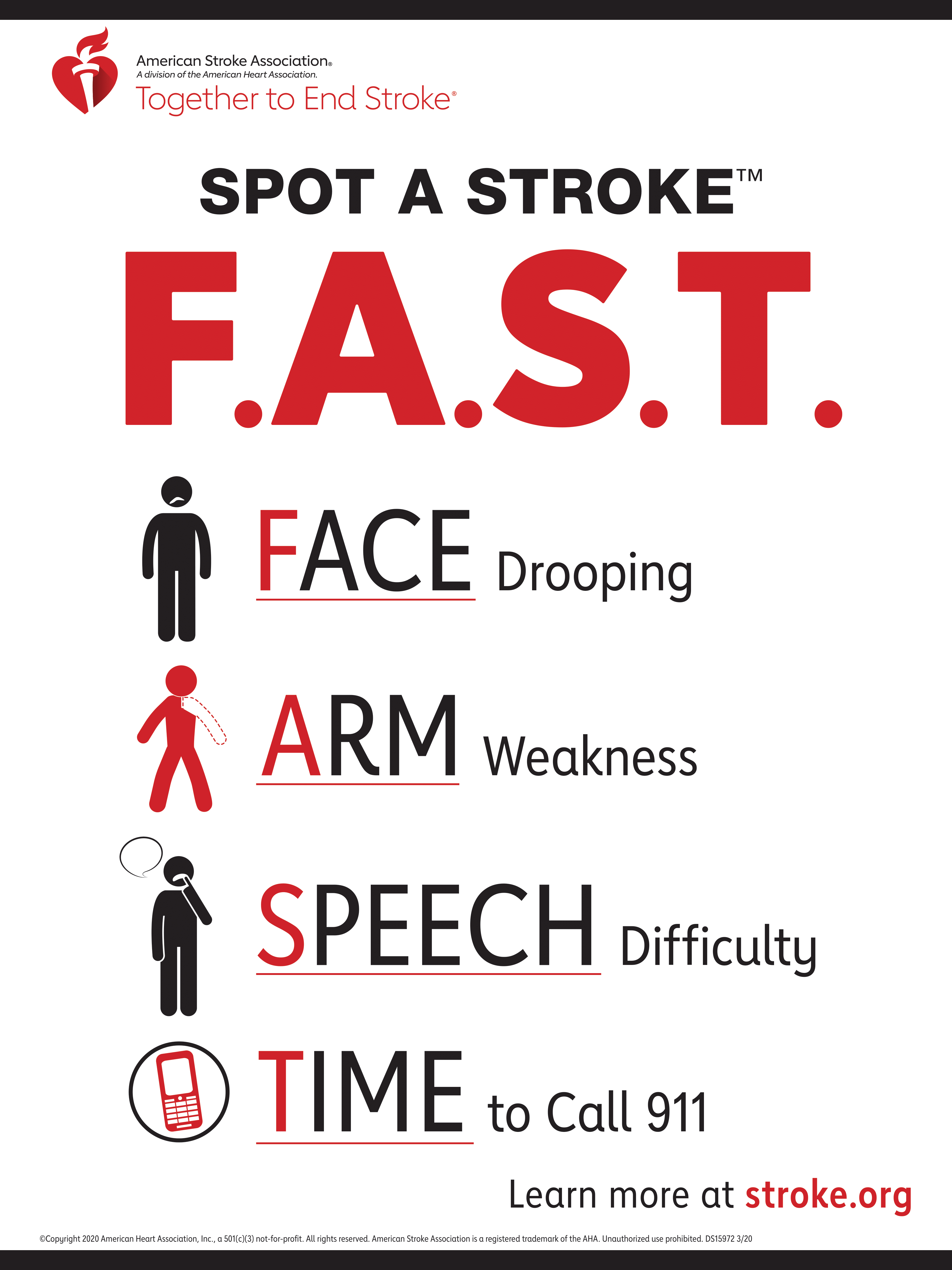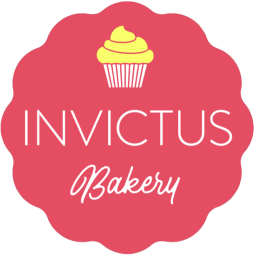In honor of World Stroke Day on October 29th, we wanted to take a moment to highlight some information about strokes, including the vital warning signs to look for. Recognizing these signs is key to early intervention and can be life-saving. F.A.S.T. is what you need to remember.
F.A.S.T is the acronym created to help you remember what to look for so that you can recognize the signs of a stroke.
F – Face drooping
A – Arm weakness
S – Speech difficulty
T – Time to call 911
If you are experiencing these symptoms or recognize that a friend, stranger, or loved one is experiencing these warning signs, please call 911 immediately. The American Stroke Association at www.stroke.org is a great resource for information.
Whether you or someone you love has experienced a stroke, or CVA (cerebrovascular accident) it can be a very trying time. Many sudden changes can happen at once, which can feel overwhelming. Knowing where to turn for help and having support during this difficult time can be important. It is important to work with your doctors and mental health professionals to support you and your family during this time. Self-care is also paramount to managing stress related to the changes that you and your loved ones are experiencing.
What Can Happen When You Have A Stroke
A stroke can impact the entire body and is one of the leading causes of disability in America. Strokes will impact each individual differently, depending on the type of stroke, the injured part of the brain, and the individual. Having a stroke can leave an individual with a combination of physical disabilities, personality changes, psychological disorders, and a complete change in day-to-day life. These changes can be extremely hard to cope with, not only for the individual, but for their family and caregivers. Understanding the changes that may happen and how to navigate them can make new transitions less challenging.
Physical
There are a wide range of physical impacts that an individual can be faced with after experiencing a stroke. Some of these include:
Paralysis
Some individuals may have weakness or paralysis on one side of their body.
Speech
Individuals may have issues with reading, writing, speaking, and understanding what is being said to them.
Movement & Coordination
Difficulties with walking and balance may arise. Some individuals may need assistance while walking. Individuals may also experience tight and stiff muscles, causing them to have a limited range of motion.
Fatigue
Feeling fatigued or becoming very tired after minimal mental effort is a common symptom.
Swallowing
Dysphagia, or issues with swallowing, is a common issue, which can make it difficult for individuals to eat and drink.
Incontinence
After a stroke, some individuals may have issues with bladder control, frequent urination, or other bowel issues.
Vision
Depending where the stroke occurred, some individuals may lose vision or have blind spots, develop double visual, or have trouble understanding what they are seeing.
Psychological
Strokes not only impact an individual physically but they can have a profound effect on an individual’s mood and personality. The effects of a stroke can leave an individual feeling a multitude of emotions. Consulting with a doctor or psychologist can help understand how to cope with these feelings and recent life changes.
Frustration
Individuals may feel frustrated because of physical changes, not being able to communicate, move, or continue their normal routine.
Grief
Coping and going through the grieving process is normal for individuals who have experienced a stroke. Coming to terms that their life has been altered can be extremely hard and can take time to process.
Depression
After a stroke, individuals may develop depression. It can manifest in many ways, such as difficulty with sleeping, not interacting with friends or family, loss of interest in hobbies, and feelings of hopelessness.
Anxiety
Becoming worried about having another stroke, the future, or life changes are common in individuals who have experienced a stroke.
Disinhibition
Behavior may change. The stroke may cause one to say or do things impulsively. Emotional responses, such as crying, laughing or anger, may be impossible to control. It is not necessarily a change in the person but is an effect of the stroke.
Suicidal Ideation
Some individuals may start to develop suicidal ideation. Not being able to cope with recent life changes can be extremely difficult, and individuals may feel like they do not have a choice. If you or someone you know is thinking about suicide, reach out and get help https://www.samhsa.gov/find-help/988
What Treatments are Available?
Treatments for stroke depend on type of stoke has occurred and what part of the brain has been injured.
Immediate Medical Help
If you suspect someone is having a stroke, call for medical help immediately. Depending on the type of stroke (ischemic or hemorrhagic) will determine the type of emergency medical intervention used.
Prevention
There are many prevention treatments available. It is important to consult with your doctor before starting any new regime. Some treatments include taking aspirin to help lower the risk of a blood clot, keeping blood pressure under control, keeping cholesterol under control, and some people can benefit from having a stent put in, to help keep their arteries open.
Rehabilitation
Individuals who have experienced a stroke may need help to regain their everyday skills. Having physical, occupational, or speech therapy can help people manage the physical impairments a stroke can cause. Cognitive and psychological therapy can also help individuals with mental exercise and coping with a new normal.
Are There Support Groups?
Yes! If you are in need of support, ask your doctors or mental health professionals for local resources. The American Stroke Association also has a support group finder.
https://www.stroke.org/en/stroke-support-group-finder
Remember to stay informed and act F.A.S.T.





